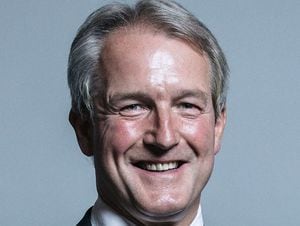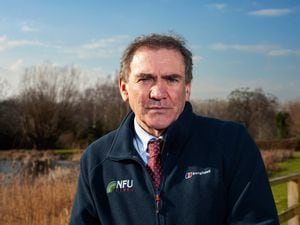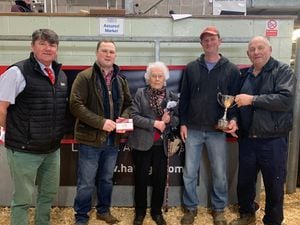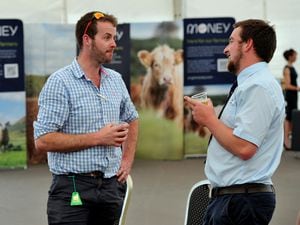Brexit will free farmers from red tape, says Owen Paterson MP
North Shropshire MP Owen Paterson says the decision to abandon Theresa May's Brexit deal will free the Government to provide better support to Britain's farmers.

Mr Paterson said Mrs May's withdrawal agreement would have prevented the British Government from increasing support to farming.
The former Environment Secretary said it would have opened the door to other EU governments being able to offer more help to their farmers, putting British agriculture at a disadvantage.
Mr Paterson, a fierce opponent of Mrs May's deal, said its 'dire ramifications' would have all but ceded control of UK agriculture to the EU.
"We would not even have been free to decide the levels of financial support for landowners," he said.
"The terms of the agreement would have forced the UK to keep support for British producers pegged at the 2019 level while allowing EU competitors to increase theirs, handing them an enormous advantage."
Welcoming the new Prime Minister's decision to abandon the deal, Mr Paterson said the UK could now build a bespoke system of agricultural support tailored to the needs of British farmers, with subsidies at or above the levels under the EU’s Common Agricultural Policy (CAP).
He said in the longer term Britain should aim to move away from production subsidies, and replace them with a system of financial rewards for environmental and public benefits, such as maintaining the cultural landscape, promoting soil quality, improving biodiversity, and providing effective water management.
Climate
He said that freeing farmers from the constraints of the CAP would also allow them to boost productivity.
"The benign British climate, the length of its days and its soil quality provide some of the most productive land in the world," said Mr Paterson.
"We can have every confidence that food-producing areas of the country will continue to prosper once released from the CAP and encouraged to embrace the latest technologies – from gene editing to robotics.
"France, for example, is missing out on over 4.5 tonnes per hectare in its maize yield compared to the US.
"That crop could be worth hundreds of millions of euros to the French economy, or free up 500,000 hectares for wildlife, recreation, or forestry.
"Likewise, harnessing genetics in New Zealand has produced spectacular productivity increases with easier lambing and sheep who grow faster, yield more meat and are less prone to disease.
"British sheep and livestock farmers can replicate the successes which have seen the average number of sheep managed by one person in New Zealand rise from 850 to over 4,000 since the 1980s."





